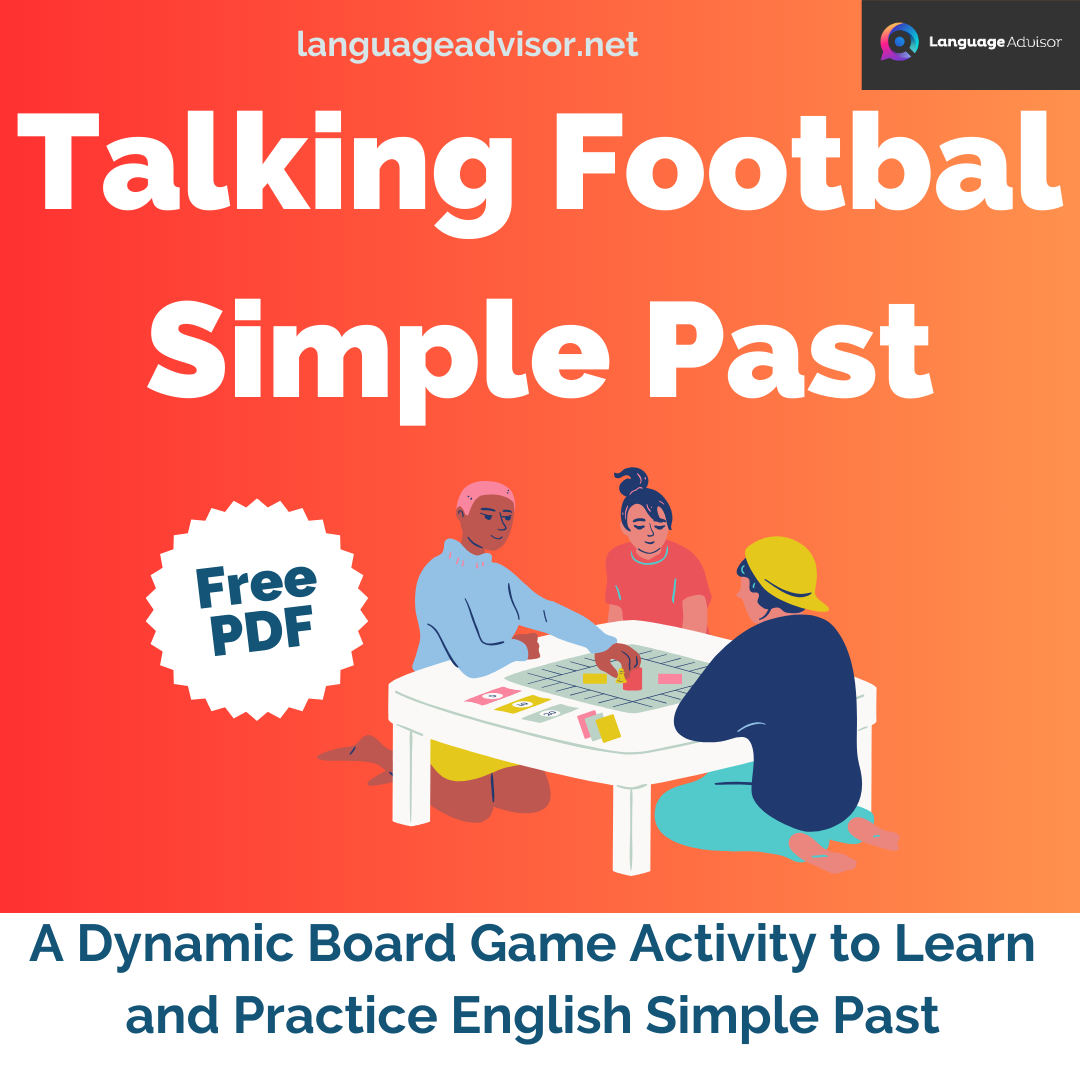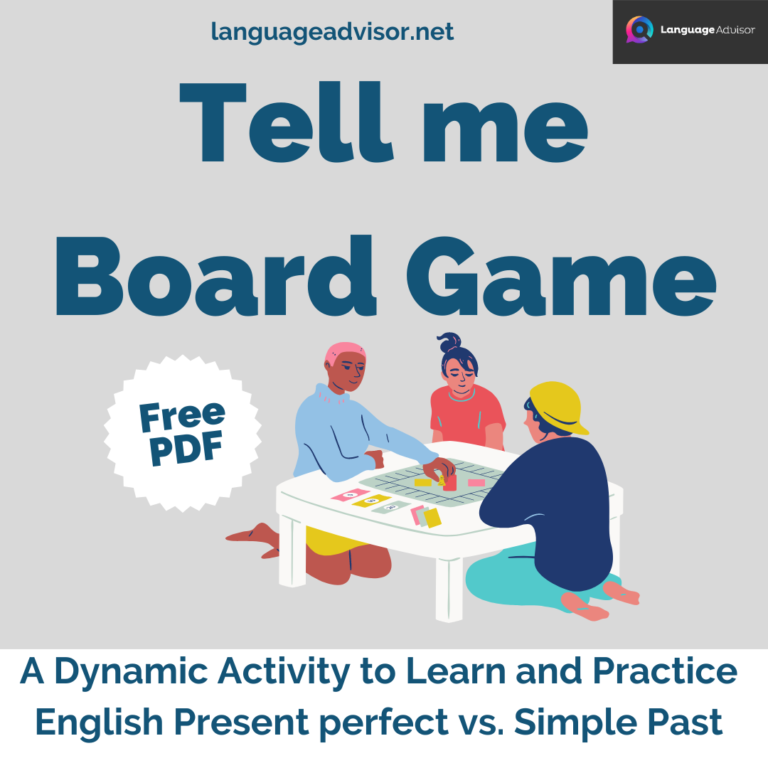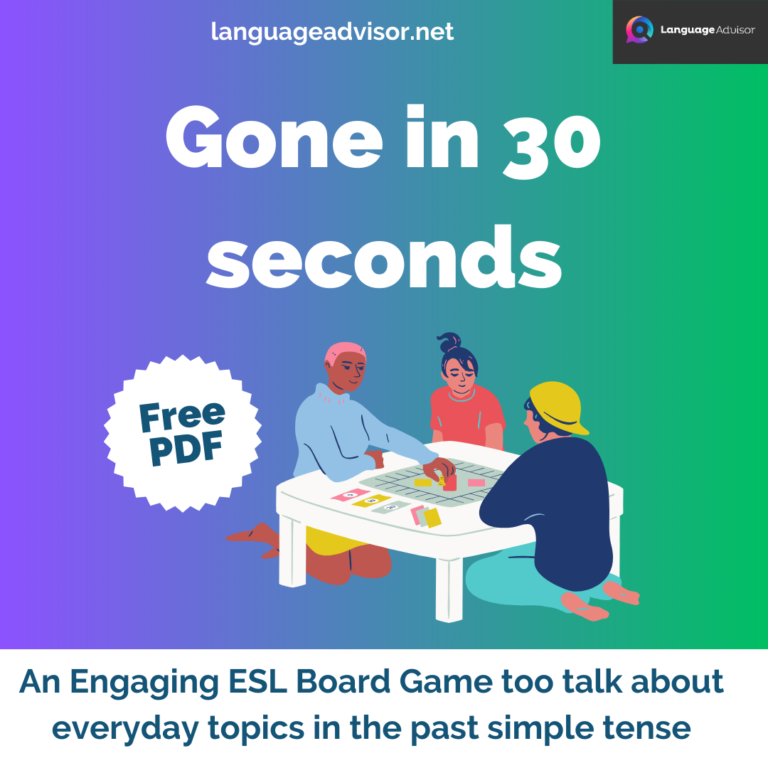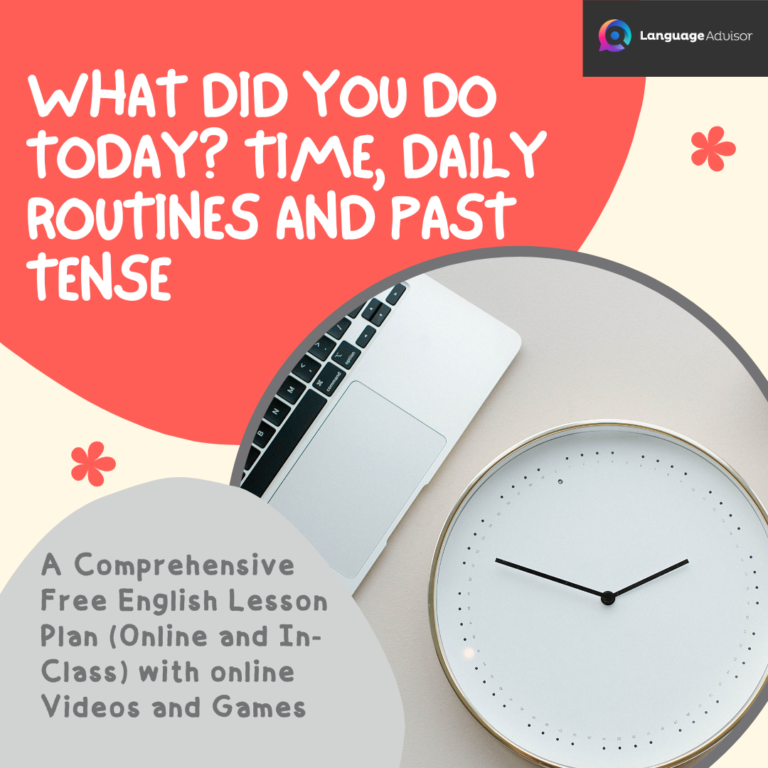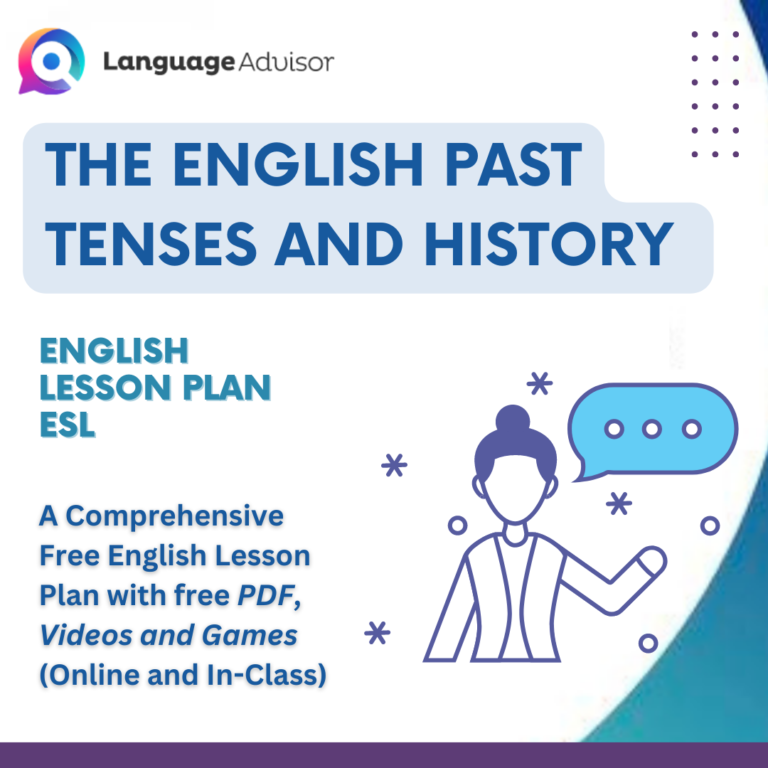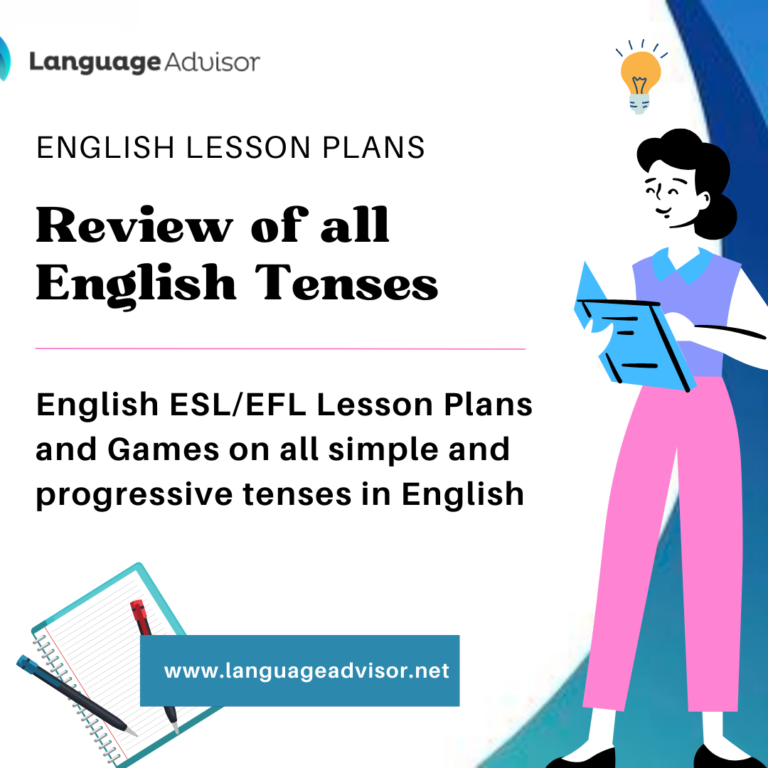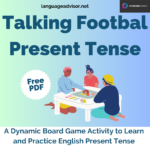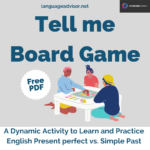Talking Footbal – Simple Past Board Game. A Dynamic Board Game Activity to Learn and Practice English Simple Past – Free Downloadable and printable PDF Included
Talking Footbal – Simple Past Board Game

Talking Footbal – Simple Past Board Game
Skills to practice: Practice simple past tenses by combining verbs with time words and expressions.
Class Levels: Adaptable for all levels of students and all class sizes.
Requirements: Cut out the game resources below. Cut out the balls or players and use as markers
How to Play
- Generally the idea is for students to combine the cue words(time words in orange rectangles) at the sides with the key words( verbs in the middle of field)
- For example in the first example students can combine yesterday + wash to make a sentence like “Yesterday I painted a picture.” Note that the verb must be changed to the simple past form.
- The two teams or players would toss a coin to decide who starts first, or do Rocks, Paper and Scissors. The winner starts combining a cue word and a key word to make sentences. Players cannot use the same cue word in a row.
- The other team or player must listen carefully to spot the mistakes. If there isn’t any mistake in the sentence, the player can keep his/her space.
- If there is a mistake the team or player gets a yellow card and move back one step. If no mistake they keep their captured space. The other team takes its turn to combine cue words and keys words to make sentences. Every successful sentence means they retain the space and prepare to advance.
- Both teams (players) keep advancing until they meet on one space. When they meet they do ROCKS, PAPER and SCISSORS. The team that looses the ROCKS, PAPER & SCISSORS guess, gets a red card and goes back to start. The winning side continues until they meet again. Every time they, meet they do rocks, paper, and scissors to see who gets a red card. The team that gets to the other team’s goal, wins. (Note that the red and yellow cards are only useful when you play the game as a whole class. As a board game pair the cards may not be useful)
- When players get to the centre, it is a FREE space so they can create any sentence they like.
- If you decide to continue, try different key words or swap sides after the first side wins.
- Feel free to adapt this game for your classes as you like. Also feel free to modify or add rules.
Tips for large classes
This game is a board game, but can also be played in a large class. Photocopy the game on an A3 or larger paper size, or project in on a projector if your class has one. Use blue tag to stick team players as they advanced.
Download the free PDF and introduce this dynamic board game into your ESL classroom today!

Talking Footbal – Simple Past Board Game

Be sure to explore these additional materials focusing on English Simple Past


